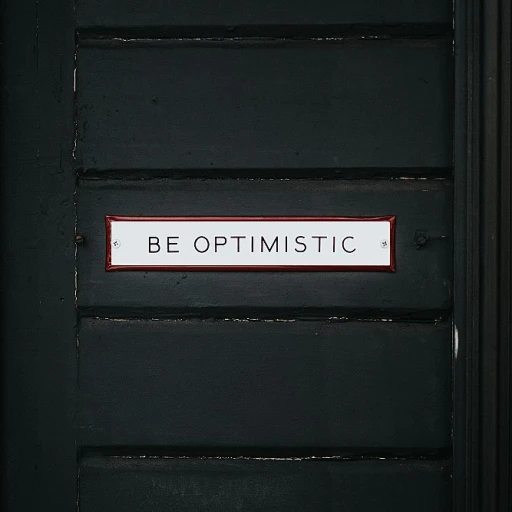
Understanding Background Checks
Key Elements of a Comprehensive Assessment
The realm of background checks is vast, encompassing various activities that employers undertake to verify the credentials of potential hires. These checks often include employment history, education, and occasionally, social media presence, aimed at ensuring applicants possess the necessary qualifications and suitability for a job. A proper understanding of these assessments is critical for both employers and job applicants aiming to navigate the hiring process effectively.
One common misconception is that background checks solely focus on criminal records, when in fact they go beyond that. Often, employment background checks delve into an individual's work history, allowing employers to verify job titles, start dates, employment dates, and roles listed on a resume. This helps in validating the claims made by candidates regarding previous employers and positions held. By conducting thorough checks, hiring managers can assess if the applicant has presented an honest and accurate reflection of their past employment.
During the screening process, employers will typically conduct background checks aligned with the position being offered. This could range from verifying educational records to investigating an applicant’s work history with previous employers. A notable aspect of the check includes contacting former employers to confirm employment dates, job titles, and the reasons for leaving, which significantly informs hiring decisions. In cases where discrepancies in employment history are found, it leads to considerations in assessing the candidates further.
It’s imperative for job seekers to be aware of how their employment background can affect their prospects. Ensuring that their resume reflects an authentic account of their work history is vital since any misrepresentation might adversely impact their application. Understanding attrition and how various elements of a screening process interact, plays a pivotal role in this context. For more insights, consider exploring our deep dive into hiring tech.
A balanced outlook on background checks ensures transparency in the hiring process, enabling fair employment practices, and preserving the integrity of both employers and applicants.
Employment History in Background Checks
What Background Checks Can Uncover in Employment History
A crucial part of the employment background check process involves examining a candidate's work history. Employers will typically use this step to ensure the information provided by job seekers on their resumes is accurate and reliable. Background checks show employers the following aspects of a candidate's employment history:- Job Titles and Responsibilities: Verifying the job titles and responsibilities helps hiring managers ensure that applicants have not exaggerated their roles. This verification is essential for understanding if potential employees possess relevant experience for the job.
- Employment Dates: Confirming employment dates can help identify any discrepancies in a candidate's resume. This is critical for maintaining consistency and transparency in the hiring process.
- Previous Employers: By looking into previous employers, companies can confirm if applicants worked for the organizations and held the roles they claimed.
- Work History and Gaps: Employers often assess the continuity of an applicant’s work history. Any gaps can prompt further inquiry to understand the context or reasons behind them.
The Role of Background Checks in Tech Hiring
Maximizing Background Checks in the Tech Sector
The role of background checks in tech hiring cannot be overstated. As the sector is constantly evolving, companies need to ensure that they are hiring the right candidates, especially for positions that require handling sensitive data and advanced technology. Background checks become an essential tool in this process. When tech companies conduct background checks, they typically inspect employment history, criminal records, and even social media activity. This comprehensive screening process allows hiring managers to verify the information that job seekers provide on their resumes, ensuring accuracy in employment dates and job titles. By checking previous employers and confirming work history, employers will have a clearer picture of an applicant's credibility. Employers in the tech industry use background checks to evaluate a candidate's past performance and behavioral patterns. This insight assists in revealing any potential risks, such as inconsistencies between a resume and actual employment records, which can influence hiring decisions significantly. For a deeper understanding of what red flags to watch out for during a tech background check, consider examining these relevant insights. However, it's important for both employers and candidates to understand that the effectiveness of a background check greatly depends on the thoroughness and relevance of the information gathered. As such, tech companies should aim for a balanced approach that respects privacy but provides enough information to make informed hiring decisions.Challenges with Employment Verification
Obstacles in Employment Verification
When conducting a background check, verifying an applicant's employment history can pose several challenges. For many employers, confirming employment records becomes a critical step in the hiring process. However, the hurdles associated with verifying employment dates and job titles can be daunting. One of the primary challenges is the accuracy of employment records. In certain cases, discrepancies may arise between an applicant’s resume and the records held by previous employers. This inconsistency can lead to confusion for both job seekers and hiring managers. Furthermore, some companies have policies that limit the amount of information they will disclose, often confirming only the dates of employment and job titles, which might not provide a complete picture of an applicant's work history. Another significant obstacle is the potential for gaps in employment. Applicants might list jobs that are no longer reflected in the current employment background checks, especially if past employers have gone out of business. This can make it difficult to fully assess an applicant's work history. Additionally, the increasing reliance on social media for professional networking adds a layer of complexity. The information available online is not always reliable, and employers must be cautious when using such sources to make their hiring decisions. Lastly, the manual process of verifying multiple previous employers can be time-consuming and prone to errors. As the demand for thorough applicant screening increases, developing efficient methods to conduct background checks and verify employment details becomes essential. In a complex hiring landscape, both employers and applicants must navigate these challenges by ensuring transparent communication and maintaining accurate employment records throughout the job search and recruitment process.Privacy Concerns and Legal Considerations
Balancing Privacy and Employment Verification
When conducting a background check, both employers and candidates must be cognizant of privacy concerns and legal considerations. Privacy is a crucial factor in the hiring process, especially given the personal nature of employment history data and the sensitivity of criminal background information.
Employers will typically require consent from applicants before they initiate the background screening process. This ensures compliance with privacy laws that safeguard employee records. In the United States, for example, regulations like the Fair Credit Reporting Act (FCRA) mandate that employers provide disclosure and obtain explicit permission from job seekers. Failure to adhere to such regulations can not only jeopardize the integrity of the hiring process but also expose employers to legal liabilities.
Furthermore, the scope of checks should be carefully considered. Companies must decide if social media screenings are appropriate, as these can sometimes lead to invasions of candidates' personal lives beyond their professional resumes. Employment background checks should ideally focus on pertinent job-related history such as previous employers, employment dates, job titles, and start dates, without delving into unrelated personal aspects.
Employers should also be transparent with candidates about what checks will entail. Outlining what aspects of an applicant's work history and background checks show provides clarity and builds trust. It is beneficial when applicants know what information will be retrieved and confirmed, enabling them to prepare accordingly and list job details that align with their professional profiles.
Ultimately, both hiring managers and candidates need to navigate a complex web of privacy laws, striving for accuracy and legitimacy in employment verification while respecting individual privacy rights. Maintaining transparent communication and respecting confidentiality can mitigate potential concerns during the hiring process, fostering a fair and respectful atmosphere for all parties involved.
Best Practices for Employers and Candidates
Guidelines for Ensuring Fair Background Checks
In the process of conducting an employment background check, both employers and candidates need to adhere to best practices that promote transparency and fairness. This not only helps in avoiding misunderstandings but also ensures a smoother hiring process. Here are some crucial steps and considerations:
- Inform Candidates: Employers should clearly communicate the intention to carry out a background check early in the hiring process. This includes specifying the scope of the checks, such as employment history verification, criminal records screening, and social media assessments.
- Verify with Precision: When verifying employment dates and job titles, it's essential to be as accurate as possible. Employers will benefit by recognizing discrepancies in employment dates or job titles listed in the applicant's resume against actual records.
- Respect Privacy: Employers and hiring managers must ensure that the applicant’s personal information is handled with confidentiality. Legal considerations play a crucial role in maintaining privacy standards.
- Transparent Communication: If issues arise during the employment verification process, it's crucial for both the hiring team and job seekers to maintain open lines of communication. This includes discussing any discrepancies found in previous employers' records or employment history.
- Avoid Discrimination: Checks should be conducted uniformly for all applicants to prevent any biases based on race, gender, or other protected characteristics.
- Candidate's Due Diligence: Candidates should double-check their resumes to avoid inconsistencies. Knowing what checks will reveal employers and employment history allows applicants to prepare to discuss any gaps or changes in their work history openly.
By adhering to these practices, the background screening process can be a constructive part of hiring decisions, helping ensure both employers and applicants navigate the employment check process effectively and ethically.













